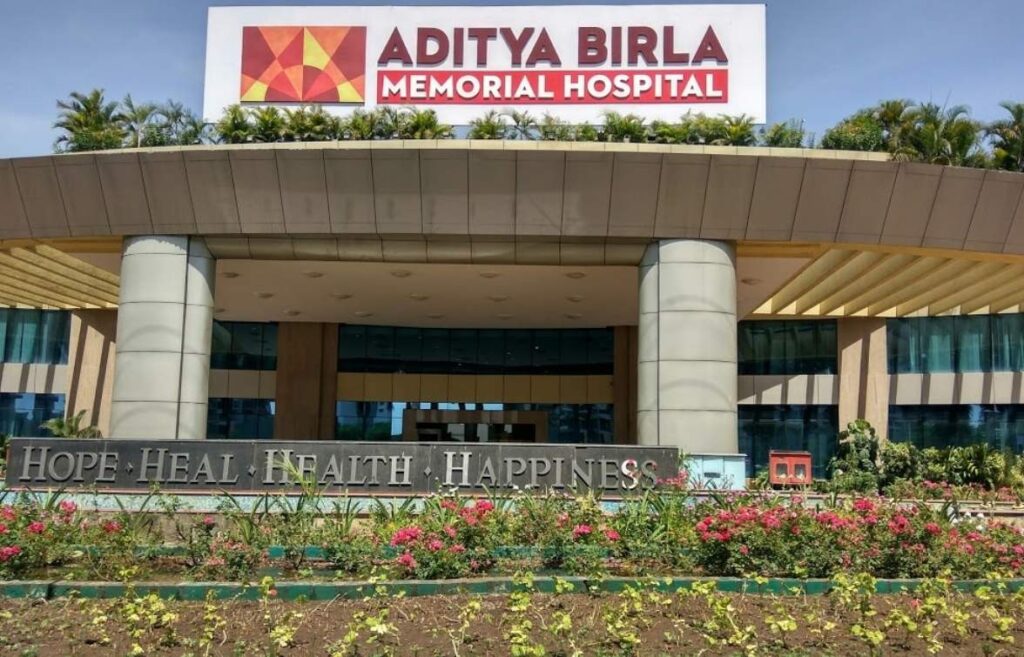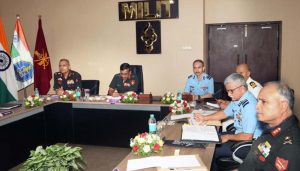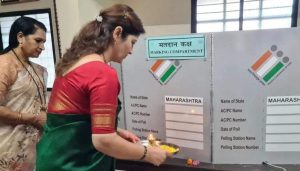Pune: Aditya Birla Memorial Hospital Successfully Performs A Complicated High-Risk Eye Ball Surgery On Five & A Half Year Old Child

Pune, 30 June 2021: Aditya Birla Memorial Hospital, Pune’s 1st JCI and NABH accredited hospital along with other accreditations including ISO 22000:2005; HACCP, CAP (USA) and NABL, successfully performs a critical eye ball surgery on a 5 ½ year old male child.
Kailash (name changed), a 5 ½ old child from Pune was referred to Aditya Birla Memorial Hospital with the complaint of profuse bleeding post root canal surgery, which was done one week back. Post root canal surgery, in last few days parents, had noticed multiple bleeding spots on the skin, dark tar like stools, and bloody vomiting episodes along with high fever.
“On admission, we saw that the child had a clinical picture of deranged coagulopathy with DIC which is bleeding disorder where blood’s ability to form a clot is impaired. It is life threatening condition where profuse bleeding in vital organs like the brain, intestines, lungs etc can lead to patient succumbing to it suddenly. There was differential diagnosis for which the blood was sent for initial blood workup & culture and the child was started on IV fluids, antibiotics and supportive local measures to control profuse bleeding”, shared Dr. Vipul Gandhi, Pediatric Intensivist ABMH.
Kailash’s initial investigations showed deranged coagulation profile with markedly raised white blood counts raising the suspicion of blood cancer i.e. Leukemia. On detailed examination of blood slides, hematologist noted multiple abnormal promyelocytes which were suggestive of blood cancer entity Acute Pro-Myelocytic Leukemia (APML) which is one of the rare blood cancer varieties. APML once considered one of the difficult to manage blood cancer, currently has 95% complete cure rate with newer chemotherapy agents. Immediately Dr. Sandip Bartakke, Pediatric Hemato-oncologist was consulted and the child was put on chemotherapy as per APML protocol. Initial few days child had stormy PICU stay with persistent mucocutaneous (Oral cavity) bleeding involving gums, oral mucosa, and conjunctiva along with bilateral raccoon eyes, persistent bloody vomiting and blood stools. To tide over DIC (bleeding disorder where blood’s ability to form a clot is impaired) crisis with life threatening haemorrhage, he required multiple red blood cells, platelets, coagulation factors and plasma transfusions for first two weeks.
“Child required as much as 2 dozen (24) blood transfusions in first couple of weeks”, shared Dr. Vipul Gandhi, Pediatric Intensivist ABMH.
On day 6 of admission child developed sudden onset of blindness with central scotoma (a blind spot that obstructs part of the vision) for which an Ophthalmology examination was done by ophthalmologist Dr. Blessy Jacob. The examination showed bilateral subconjunctival haemorrhage (a benign disorder that occurs most commonly after trauma or when there is microvascular disease) along with multiple intra-vitreal and retinal fresh haemorrhages with risk of exudative retinal detachment (the building up of fluid detaches the retina). Urgent CT brain was documented to rule out other intracranial bleedings. The CT showed a small 5-6 mm bleed in the corpus callosum (Central hinge part of 2 brain hemispheres).
Vitreo-retinal surgeon Dr Nilesh Giri was consulted on an immediate basis. He conducted a B-SCAN examination and repeat fundoscopy on the child and noted the child had developed persistent haemorrhages in gel of eyeballs (vitreal haemorrhage) as well as Retina (Screen of eyes) leading to tractional detachment of eyeball screens (Retina) in both eyes responsible for his blindness.
“Considering the tricky situation with risk of profuse bleeding at the first child was treated conservatively for his ocular complications. Once the child received intensive chemotherapy of 4 weeks, his coagulopathy was gradually improved. However, despite conservative management and observation during this period showed very little improvement in vision in terms of light perception and blurred vision. Hence we planned for active intervention. On day 36 of admission, we did a complicated high-risk eyeball surgery called bilateral pars-plana vitrectomy and endolaser treatment along with gas tamponade (Octafluropropane C3F8), to physically prevent fluid flow through the retinal break into the subretinal space a procedure under anesthesia. The child was kept in a prone (Upside down) position for 24 hours to maintain gas tamponade (To maintain a pressure of light gas against detached eyeball screen i.e. Retina) against posterior retinal detachment. Post procedure gradually his vision improved by 70-80 % and currently child is having color and shape perception and can read big letters with central vision”, shared Vitreo-Retinal Surgeon Dr. Nilesh Giri who did this critical eye surgery on the child.
At present child has been receiving 2nd cycle of chemotherapy on day care basis which has been planned for over next eight months
“I am glad the child’s vision could be saved. The multimodality approach and coordination between the Paediatric Intensive care team, hemato-oncology team as well as ophthalmology team led to good outcomes. Many patients with blood cancers can have ophthalmological complications but with recent advanced ophthalmological procedures, we can save vision or other complications related to bleeding. Advance Chemotherapy over a period of time has shown a cure rate of up to 95% observed in similar patients with this chemotherapy protocol. What is important is timely treatment”, shared Ms. Rekha Dubey, CEO, Aditya Birla Hospital.
“We are thankful to the team of doctors to recover our child’s vision and we are hopeful that it will be back to normal also soon. Our entire family was in for a big shock when we discovered his blindness. The best thing was that we had the pediatrician, oncologist, ophthalmologist, eye surgeon all under one roof, which made immediate treatment possible”, shared the father of Kailash.
Join our WhatsApp Group, Telegram, and Twitter for every update about Pune and PCMC








